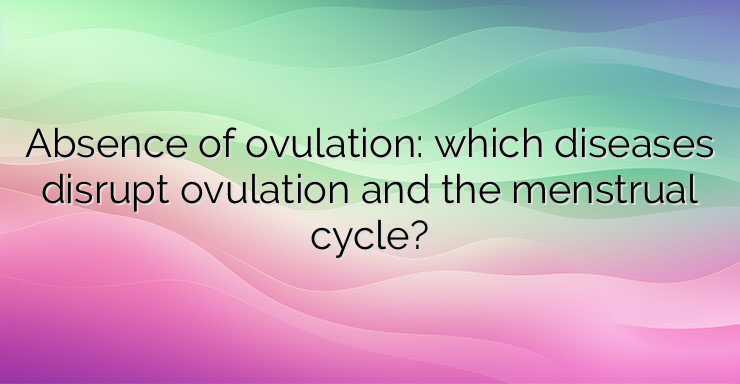Reasons for the lack of ovulation Amenorrhea after taking contraceptives After stopping taking contraceptives, natural menstruation may not immediately return. Amenorrhea after taking contraceptives is most often temporary. It sometimes takes 3 to 4 months for periods to return after stopping birth control, especially in women who did not have regular periods before starting treatment, experts say. Polycystic ovary syndrome This is a primary ovarian disease that affects 5 to 10% of women. It is the leading cause of fertility disorders in women. This syndrome is characterized by: Presence of multiple ovarian cysts – more than 20 per ovary; Always long and irregular menstrual cycles; Irregular ovulation and few ovulations per year – 3 or 4 in a year; Ovulation with poor egg quality; Hyperandrogenism – excessive hair growth, acne, greasy hair – associated with an increase in LH and testosterone levels; Metabolic syndrome – hypercholesterolemia, type 2 diabetes, obesity, insulin resistance; The presence of at least three of these symptoms should suggest the diagnosis of polycystic ovary syndrome. Not all the mechanisms involved in this syndrome have been clarified, but exposure to substances that damage the function of the endocrine glands during intrauterine development and in early childhood may be the cause, experts explain. Hyperprolactinemia Hyperprolactinemia is an excessive secretion of prolactin, a hormone produced by the pituitary gland. It has an important function for lactation at the end of pregnancy and in the weeks after birth. When it is produced in excess, in the periods in which it is not related to pregnancy, it can cause disorders of the menstrual cycle or even a complete lack of ovulation. This hypersecretion of prolactin can be caused by an adenoma – a benign tumor in the hypothalamus or pituitary gland or by taking drugs – antidepressants, antiepileptics, neuroleptics. Primary pituitary insufficiency Primary pituitary insufficiency results in a lack of the hormones FSH and LH, which are essential for the ovulation process. Other pituitary hormones are often missing as well. Chromosomal abnormalities In rare cases, the absence of ovulation may be associated with chromosomal abnormalities. This condition is irreversible. This is a rare form of primary amenorrhea. Women who are affected by these chromosomal abnormalities never menstruate. Early menopause Early menopause or more precisely premature ovarian failure is established when it occurs before the age of 40. It is associated with ovarian failure. This condition is also associated with a genetic predisposition. The supply of follicles is depleted prematurely, leading to earlier cessation of ovulation. Diseases The menstrual cycle can be disturbed in some diseases:Anorexia; Hypothyroidism; Diabetes; Cushing’s syndrome; Kidney or liver failure. References: https://www.doctissimo.fr/grossesse/envie-d-enfant/ovulation/absence-d-ovulation-anovulation-et-grossesse


Leave a Reply